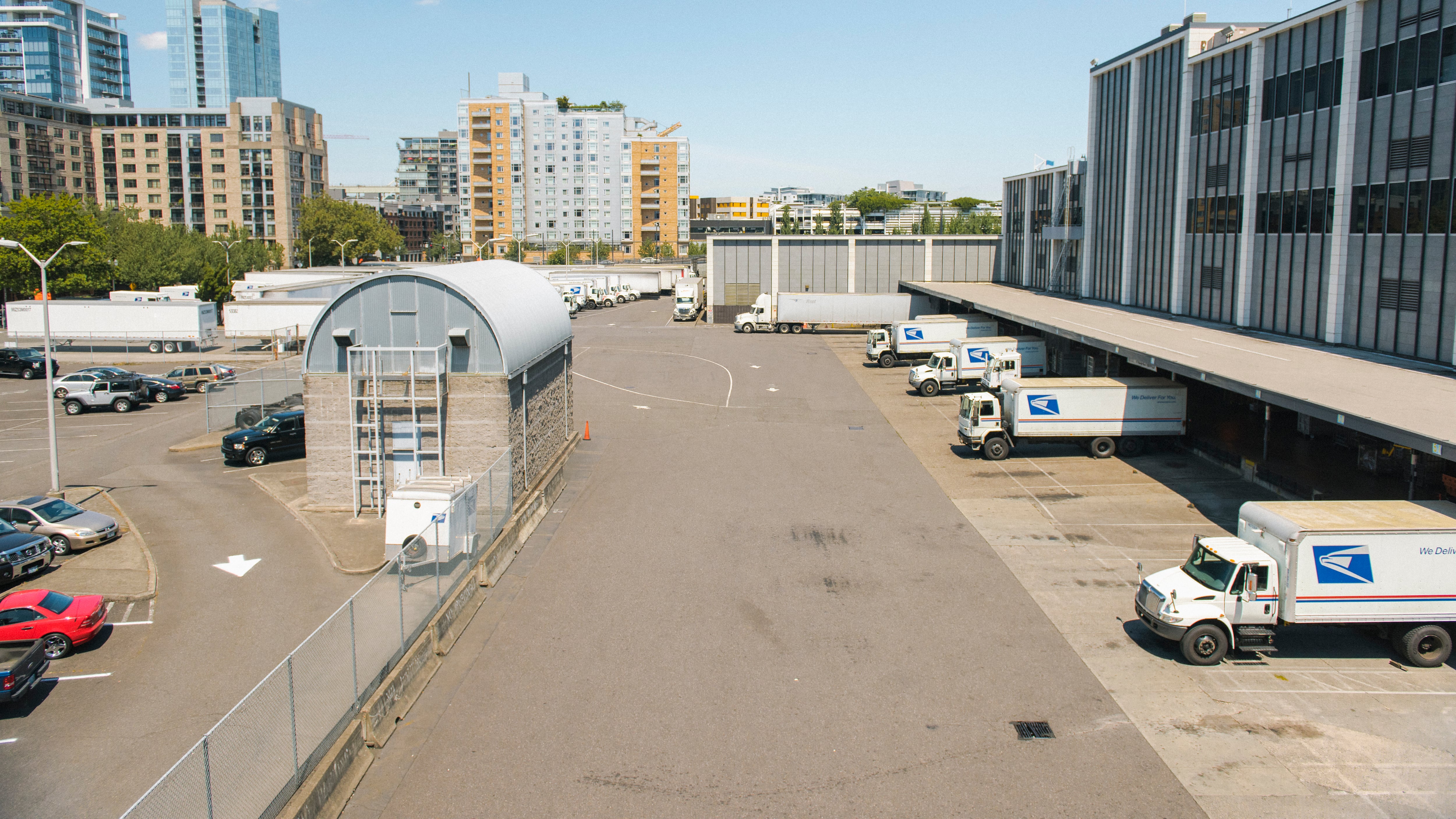A letter sent to Commissioner Dan Ryan last week—asking him to erect a “safe rest village” on the vacant U.S. Post Office site in Northwest Portland—sounds an opening note in what’s sure to be a chorus of lobbying at City Hall over where to place camping sites for the homeless.
Mark New, managing partner of the Development Company of the West, wrote to Ryan on June 2, recommending that Ryan put one of the city’s six planned safe rest villages on a site known as the Broadway Corridor. That’s 14 acres of city property at the edge of the Pearl District, bordered by Broadway, 9th Avenue, and Hoyt and Lovejoy streets, and previously occupied by the U.S. Post Office, which was relocated last year.
The vast lot now sits deserted because of a stalled demolition contract complicated by litigation. It’s co-owned by the Portland Housing Bureau and Prosper Portland, which have presented an ambitious vision for housing towers, parks and retail on the site.
New says none of that is happening soon enough to preclude a homeless village.
“[The property] is perfect for siting a safe sleeping zone to provide an alternative to the various camp sites in Old Town, the West End and along I-405,” New wrote. “The property is publicly owned, fenced, paved, has numerous buildings that can be temporarily repurposed and, except for one side, is insulated from the neighborhood. The site is transit served and near existing social services at the Bud Clark Commons. By using this site, providing services to the homeless can be efficiently delivered and the goal of cleaning up downtown and Old Town can be furthered immediately.”
He added: “Portland needs the use of this asset today far more then we need public investment into a 14-acre real estate development, when the retail and office of downtown is suffering from the greatest vacancy that I can remember in my 40 years in the real estate business.”
The letter shows that stakeholders are already offering advice about where the villages should be placed—what’s sure to be a hotly debated issue as the plan is shaped in the coming months. (In years past, similar shelter ideas have been stymied by pushback from homeowners and businesses proximal to the sites.)
Potential locations for the sites have not yet been divulged by Ryan. Last week, he told WW it was premature to say where the sites would be.
“I’d like to ask all Portlanders for patience as we move forward in this process: I know that there has been an overwhelming amount of misinformation related to our initiative, and I encourage everyone to refer to my office, [County Chair Deborah] Kafoury’s office, and the Joint Office of Homeless Services’ official communications for clarity on this issue. We’ll have more accurate information to share with you soon,” Ryan said.
New’s argument is that the city should be using its own land for these sites, not putting the tents on private property, especially downtown. He says the Post Office site is fenced and has security cameras to prevent trespassers and campers, but has lain fallow—a swath of space that should be put to city use.
“All the while, downtown, Northwest Portland and Old Town continue to be camp sites, which undermines these areas’ ability to provide safe and secure passage for their intended purpose…access to employment and shopping…not to mention the inhumane environment created when the campers congregate along the freeway right of way and on sidewalks without access to public services,” New wrote. “Why is city-owned property insulated from the impact of this crisis at the expense of private sector property?”

